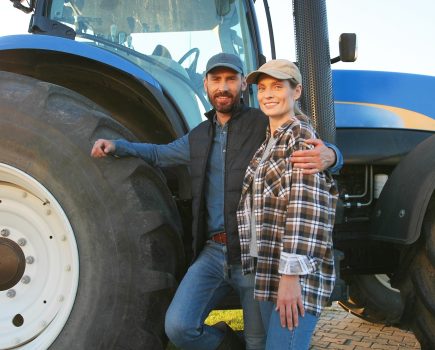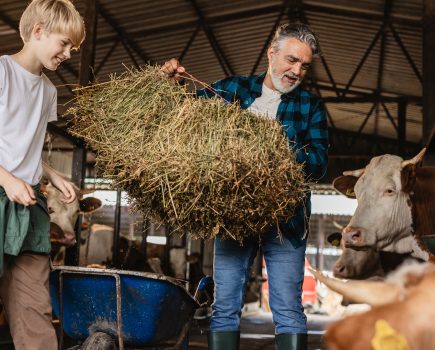Divorce presents unique challenges for farming families, especially when the farm has been passed down through generations. While the farm’s book value may be high, many farmers view themselves as custodians of a legacy, aiming to preserve the land for future generations.
This article by Abigail Eriksson-Lee, Partner, Brachers LLP,explores how divorce can impact farming businesses and how courts approach farm valuations and inherited wealth, and offers practical steps to mitigate these challenges.
How divorce affects farming businesses
In divorce proceedings, the court’s primary concern is to meet the capital and income needs of both parties, with priority given to the housing of any dependent children. The first step involves financial disclosure. For farming families, this means valuing land, livestock, equipment and other assets, many of which are integral to the farm’s operation. The impact of divorce on a farming business can be significant, potentially threatening its continuity and financial stability.
Court approaches to farm valuations
Courts consider several factors when valuing a farm:
- Market value: The current market value of the land, buildings, and equipment. This can be complicated by the unique nature of farming assets, which may lack a straightforward market comparison.
- Income potential: The farm’s ability to generate income. This includes evaluating crop yields, livestock production and other revenue streams.
Inherited wealth
Farms that include inherited wealth from previous generations are typically treated as non-matrimonial assets, as opposed to a matrimonial asset, which is an asset generated during the marriage. While matrimonial assets are usually shared equally (unless a departure from equality is needed to meet needs), non-matrimonial assets are not automatically shared on a divorce unless needed to meet the financial needs of the non-owing spouse.
Business continuity
One of the biggest concerns during a divorce is maintaining business continuity. Asset division can disrupt operations, leading to financial instability and even the potential loss of the farm. Preserving continuity is often a priority for farming families.
Practical steps to mitigate impact
To mitigate the impact of divorce on farming businesses, those affected should consider the following:
- Early legal advice: Engage a family lawyer who has experience of farming cases early in the process. They can provide guidance on protecting your interests and navigating the complexities of farm valuations and inherited wealth.
- Business structuring: Consider restructuring the farm and creating a business entity, such as a limited company or partnership, to help separate personal and business assets, as this will make it easier to protect and ringfence the farm on divorce.
- Dispute resolution options: If divorce is inevitable, explore alternative dispute resolution options, such as mediation or collaborative law. These approaches allow parties to approach their divorce holistically so they are able to reach amicable agreements, where both parties have their needs met without the need for contentious court battles.
However, without doubt the best way to protect a farm and meet the needs of a non-owning spouse is to enter into a pre- or post-nuptial agreement. If correctly drafted, and if both parties receive independent legal advice, they are given a considerable amount of weight by the courts and tend to be followed in the event of a divorce.
Conclusion
Divorce can significantly impact farming businesses, particularly those with generational ties to the land and assets. Understanding how courts approach farm valuations, inherited wealth, nuptial agreements and business continuity is crucial. By seeking early legal advice, structuring the business appropriately and considering nuptial agreements, farming families can better protect their interests and ensure long term success.
For more like this, sign up for the FREE South East Farmer e-newsletter here and receive all the latest farming news, reviews and insight straight to your inbox.







